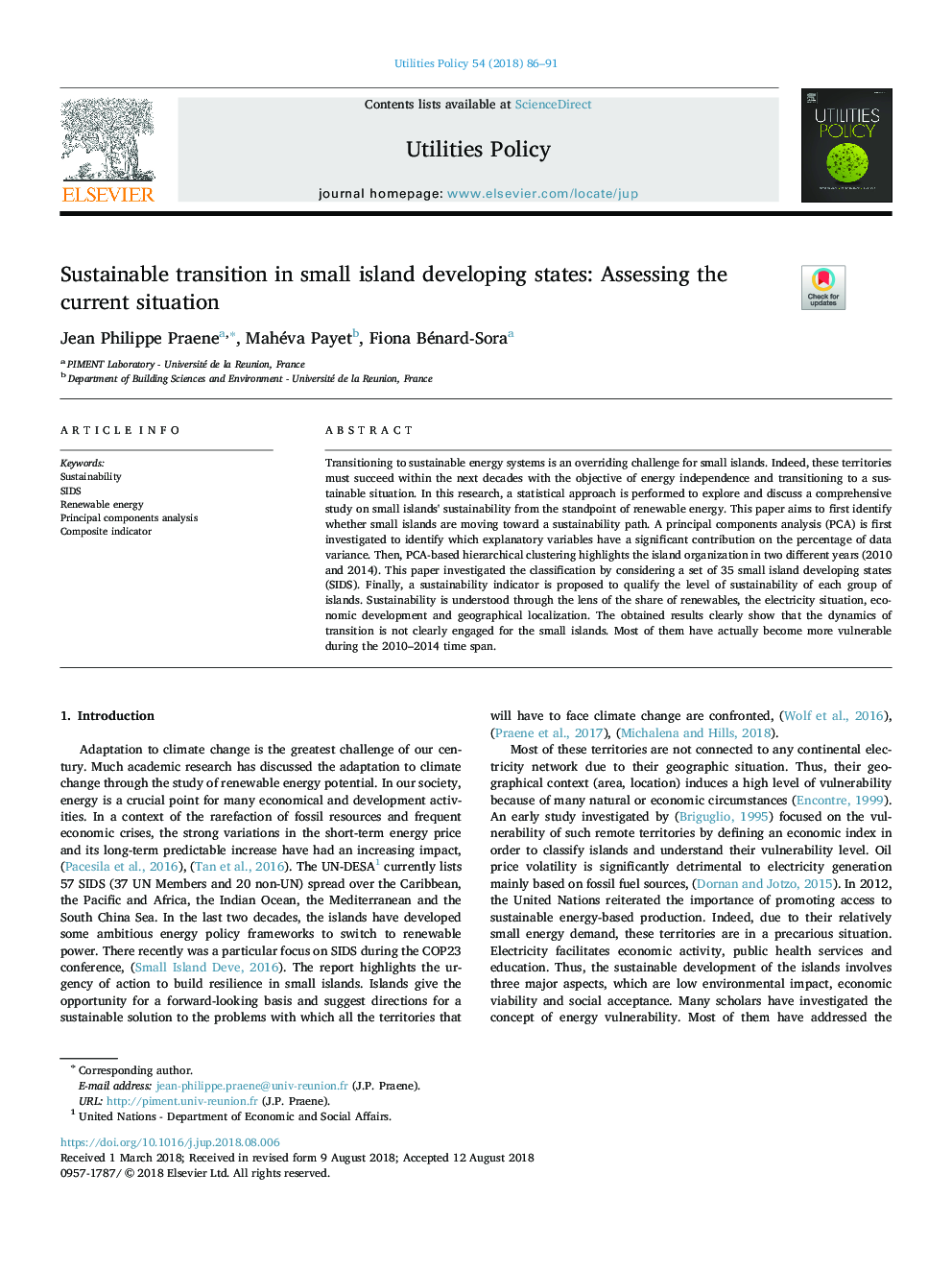| Article ID | Journal | Published Year | Pages | File Type |
|---|---|---|---|---|
| 9953103 | Utilities Policy | 2018 | 6 Pages |
Abstract
Transitioning to sustainable energy systems is an overriding challenge for small islands. Indeed, these territories must succeed within the next decades with the objective of energy independence and transitioning to a sustainable situation. In this research, a statistical approach is performed to explore and discuss a comprehensive study on small islands' sustainability from the standpoint of renewable energy. This paper aims to first identify whether small islands are moving toward a sustainability path. A principal components analysis (PCA) is first investigated to identify which explanatory variables have a significant contribution on the percentage of data variance. Then, PCA-based hierarchical clustering highlights the island organization in two different years (2010 and 2014). This paper investigated the classification by considering a set of 35 small island developing states (SIDS). Finally, a sustainability indicator is proposed to qualify the level of sustainability of each group of islands. Sustainability is understood through the lens of the share of renewables, the electricity situation, economic development and geographical localization. The obtained results clearly show that the dynamics of transition is not clearly engaged for the small islands. Most of them have actually become more vulnerable during the 2010-2014 time span.
Related Topics
Physical Sciences and Engineering
Energy
Energy (General)
Authors
Jean Philippe Praene, Mahéva Payet, Fiona Bénard-Sora,
